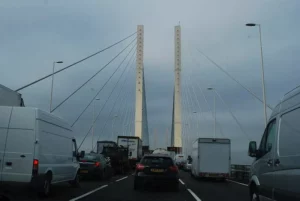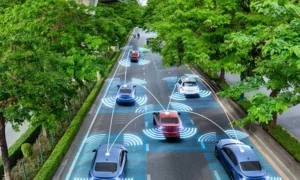A reduction in the amount of road policing over the last decade has contributed to a rise in motoring offences, according to a new report by the Parliamentary Advisory Council for Transport Safety (PACTS).
The report, Roads policing and its contribution to road safety, produced after a grant from the GEM Motoring Assist Road Safety Trust, with additional support from MIB, Jenoptik and AlcoSense, investigates links between roads policing, compliance with traffic laws and road casualties.
It found that over the past decade, the number of dedicated roads policing officers has decreased substantially. So too has the number of motoring offences detected, precipitously so for some offences such as failure to wear a seat belt. Only for speeding, where enforcement has largely been automated, has there been an increase, it says.
From an extensive literature review, which considers the findings of multiple meta-analyses comprising over 100 individual studies, there is clear evidence that an increase in enforcement will lead to a reduction in both fatal and serious injury collisions. Major studies show strong international evidence that road traffic enforcement has a significant impact on levels of compliance, collisions and casualties.
A detailed analysis by PACTS of the ‘fatal 4’ offences (speeding, not wearing a seatbelt, driving under the influence of drink or drugs, and using a handheld mobile phone behind the wheel) since 2010 shows that, broadly speaking, where enforcement has been increased, compliance has improved and casualties have dropped; but where cutbacks have affected enforcement, there has been little or no improvement.
Based on the research, and on interviews and consultation with a wide range practitioners, academics and stakeholders, PACTS recommends that the government, and particularly the Home Office, explicitly recognises the scale of death and injury that results from road traffic offences and the vital role of roads policing in combatting it. As a start, the government should specify roads policing as part of its pledge to fund 20,000 additional police officers. In addition, the Home Secretary should prioritise roads policing in the Strategic Policing Requirement.
Some 1,800 people die on UK roads each year, more than twice the number of deaths from homicides and terrorism combined. A further 25,000+ people are seriously injured.
Many of these casualties result from a failure to comply with traffic laws, knowingly or otherwise. Around two-thirds of collisions involve excessive speed, a driver over the legal alcohol limit, failure to wear a seat belt, or a combination of these factors. Since 2010, the long-term decline in the number of road deaths and serious injuries has largely ceased. It is widely suggested that this is at least partly due to reductions in roads policing.
The report sets out key recommendations:
- Roads policing should be included in the Strategic Policing Requirement.
- Police and Crime Commissioners should prioritise roads policing and road safety within Police and Crime Plans
- The number of roads policing officers should be increased.
- NPCC roads policing strategy should be revised.
- HMICFRS should include roads policing in its annual assessment.
- Collaboration and partnerships should be widened.
- Intelligence should be enhanced and more widely shared.
- Greater use should be made of technology.
- The support and participation of the public should be encouraged.
- Safe system indicators should be used to monitor road safety
- Research and evaluation should be enhanced
The PACTS report is published ahead of a cross-Whitehall review of roads policing, with an inspection report by Her Majesty’s Inspectorate of Police and Fire & Rescue Services, and public consultation anticipated shortly.
PACTS Executive Director David Davies said: “The coronavirus lockdown has highlighted the importance of roads policing, with traffic speeds increasing on empty roads and worrying incidences of extreme speeding. This could have serious consequences, particularly for people following government advice to walk and cycle. The number of road deaths is more than twice the deaths from homicide and terrorism combined and breaches of road traffic laws are the biggest single cause of road deaths. This needs to be recognised in the government’s priorities and resources for policing. The public support more enforcement. Roads policing provides double value: tackling those who drive dangerously often disrupts wider criminality. For example, Essex police found that almost half the drug-drive offenders had previous arrest records for serious crimes such as burglary, drug dealing and violent crime.”
Chief Constable Anthony Bangham, National Police Chiefs’ Council Lead for Roads Policing said: “I welcome the PACTS report into roads policing enforcement. It comes at a time when a number of key institutions, including the government and Her Majesty’s Inspectorate of Constabulary and Fire & Rescue Services are also interested in how we police our roads. There are more than twice as many road deaths as homicides in the UK every year. This shows how significant road death still is. A successful road safety strategy requires a level of enforcement and most enforcement powers rest with the police. Reports, such as this one, are highlighting where improvements can and should be made so that we can create a new urgency across policing and partner activity to reduce death and serious injury and make our roads the safest in the world.”
The full report can be found here.





















